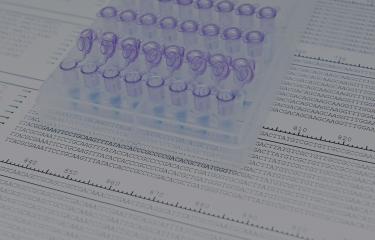The official launch of the "Epigenome" Network of Excellence will take place 24 September 2004, in Brno (Czech Republic) during the first meeting of this consortium's partners. The "Epigenome" Network brings together 25 European laboratories that are leaders in the field of epigenetics, from 6 European countries, including two French groups: those of Geneviève Almouzni (CNRS - Institut Curie) and Philip Avner (CNRS - Institut Pasteur). The epigenetic modifications of DNA-passed on through heredity, though not encoded in an individual's genes-drastically change our view of heredity. They have an important biological impact, especially for cancers, during cellular ageing and in the development of an organism.
Press release
Paris, september 6, 2004
For decades, the sequence of DNA was considered to be the sole determinant of heritable information, but recent discoveries have drastically changed this view. Researcher now know that the genes carried by DNA are not everything. So-called "epigenetic" modifications affect hereditary information without the genetic code being modified: possible modifications include the fixation of chemical groups (methyl, phosphate, acetyl) on DNA and its associated proteins. The "Epigenome" Network of Excellence will be devoted to this emerging field of biology.
A consortium of 25 of the foremost epigenetics research groups signed a contract with the European Community to establish the "Epigenome" Network of Excellence. This network, coordinated by Thomas Jenuwein (Research Institute of Molecular Pathology, Vienna) and assisted by Geneviève Almouzni and Philip Avner, will receive 12.5 M € from the European Community’s FP6.
Within the next five years, the "Epigenome" programme will establish a European platform dedicated to research and communication in the field of epigenetics.
To achieve this goal, a joint research programme will be established to increase knowledge in this field. Young research teams-22 in total-will be integrated into the network for a period of three years during the course of the programme, once the best projects are selected. With this dynamic structure, the "Epigenome" Network of Excellence aims to combine cutting edge research with a continuously evolving academic and personnel structure.
To facilitate communication of the most recent epigenetics research results within the scientific community as well as to the public, "Epigenome" will have its own interactive website. A biannual conference is scheduled, as well as scientific events for the public.
The creation of this trans-European epigenetics network will contribute to the organisation of this particularly dynamic field of research. We now know that the modifications of an "epigenetic memory" can have serious consequences for the body. The "Epigenome" programme will make it possible to improve our comprehension of epigenetic transmission and its implications for human health, especially in the areas of stem cells, cancer and ageing.
Website: http://www.epigenome.imp.ac.at/content/con_intro.html
Contact
Researcher contacts
Geneviève Almouzni
01 42 34 67 06 - Genevieve.Almouzni@curie.fr
Philip Avner
01 45 68 83 47/86 25 - pavner@pasteur.fr
Life Sciences department contact
Jean-Pierre Ternaux
01 44 96 43 90 - jean-pierre.ternaux@cnrs-dir.fr
Contact press
Institut Pasteur
Nadine Peyrolo ou Corinne Jamma
01 40 61 33 41- cjamma@pasteur.fr
CNRS
Isabelle Tratner
01 44 96 49 88 - isabelle.tratner@cnrs-dir.fr
Institut Curie
Catherine Goupillon
01 44 32 40 63 - catherine.goupillon@curie.fr





